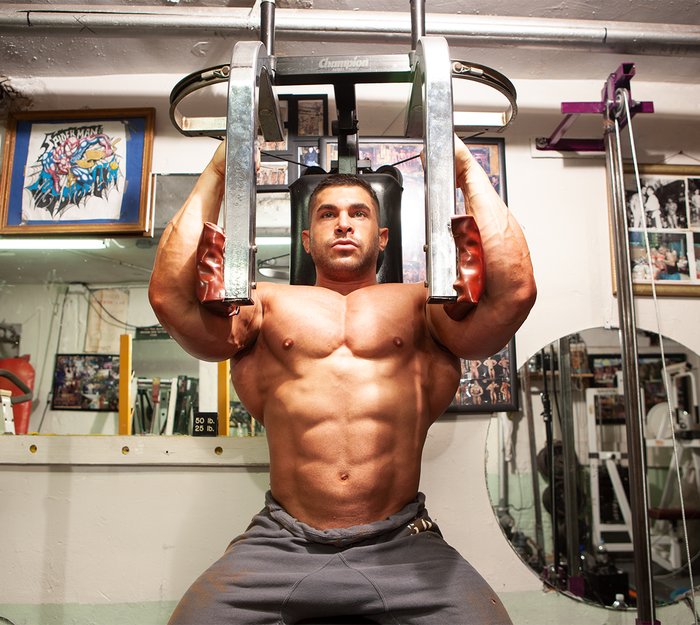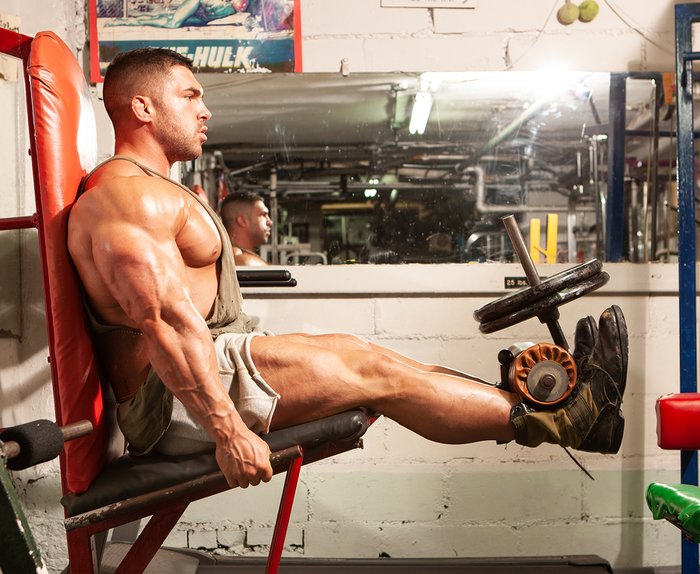The first time you compete, it's normal to do more wrong than you do right. But now that I have a few years of consistent competition at a high level under my belt, I have the space to step back and analyze what really worked, and what I did that either didn't help, or that dramatically set me back.
It's easy to just focus on rest and recovery after a bodybuilding show—after all, it's a grueling gauntlet physically, emotionally, and in your life in general. However, it's always a good idea to reflect on past performances so that you avoid making the same mistakes twice. As you continue to compete, you'll get a lot of advice from other competitors—and from judges. Use that insight, and what you learn from your own mind and body, to keep improving.
Here are seven essential things I've learned so far.
1. Set Time-Bound Goals
Don't just cut. Cut for something!
Whether or not you're prepping for a meet, it's important to set a specific goal for your training. Maybe you're not competing, but just want to look good for an upcoming beach vacation. Treat that vacation just like a competition and make it a real deadline.

Otherwise, it's too easy to start procrastinating and telling yourself you have plenty of time. You don't! Give yourself a hard date and you'll have something to work toward—and look forward to.
Having a hard deadline also allows you to pace your training while having some sense of urgency, both of which are essential. Start off slowly and work your way up. Train 5-6 days a week, first with just weights and low-intensity cardio. If you do high-intensity cardio, limit it to around four days a week for maybe 20 minutes at a time.
As you get closer to your deadline and as your work capacity grows, you can rev up your workout a little bit.
2. Embrace the Bland, Avoid the Sweet
When I first began competing, I didn't understand that when you're getting in shape to step onstage, eating is not about enjoyment—at all. It's about building and retaining as much muscle as possible. The end.
That may sound like a no-brainer, but it took me a while to realize that even something as "harmless" as using extra condiments and flavorings was having an extremely negative effect on my show physique. The more I flavored the dishes I cooked, the more I craved those dishes. The more I used sweeteners—even zero-calorie ones—the more desserts and sugary snacks I wanted, and the more my physique suffered.
Once I decided to make my food taste a bit bland—and accept it as being bland—my cravings went away and food became simply fuel. That's a simple, but profound mental shift.
Once you resign yourself to bland food and think of food as fuel, your cravings will go away. I promise!
3. Vegetables Are Great, But…
Vegetables are essential during prep, of course. But like anything good, you can overdo it.
Vegetables are essential because they're nutrient-rich, but also because they add fiber to your diet, which helps regulate your digestion. On the other hand, don't eat vegetables too close to your workout, since fiber can slow down your digestion. Doing serious training with a belly full of food is no fun.
Be mindful as well of the calories and sugar content in vegetables, especially if you're eating multiple servings of vegetables with every meal. When I'm contest prepping, I stick mostly to green vegetables and mushrooms, simply prepared.
To be clear, I'm not saying to cut back on vegetables here, I'm saying to embrace them as one part of a balanced diet—not the overriding focus of it. Find what works for you and your digestion, and then stick with it.

4. Give Sodium Respect!
I've noticed that a lot of people like to cut sodium out of their diet when they prep. They want to dry out, lean out, look good all the time, be shredded all the time. That's a bad idea. I don't take sodium out of my diet until literally the day before the contest, and even then I still keep little bit in.
You need sodium for hydration, muscle contractions, and to keep your electrolytes in balance. Plenty of water and plenty of sodium is the magic combination to both keep you hydrated and keep your muscles fuller. Eat lots of salt without drinking lots of water, and you'll start retaining water, which can make you look puffy, and according to some research (and my personal experience) can also increase fat retention—regardless of how few calories you're eating.[1]

5. Cluster Competitions
After you do a show, the last thing you want to do is another show. You want to eat, rest, recuperate, eat…and eat.
After my second year of competing, I learned that spreading out my shows over four months or longer was a terrible idea. The main problem was that when I prepped for my last show, my body didn't respond as well as it did for my first show. Even when I gave my last prep everything I had, my body just couldn't respond like it did early on. Now, I group my shows much closer together, with no more than 2-6 weeks between them.
With your shows close together, you'll have an easier time maintaining your competition physique, and you won't have to diet for too long—which is a real problem for many competitors. You'll still probably need to get rid of some fat, but don't rush into doing too much cardio or dropping your calories too low.
In the weeks between your events, carefully assess your progress and adjust your prep as needed. If you're losing body fat and shaping up nicely, stick to your plan. If you aren't, reduce calories, increase cardio, or train harder—or maybe do all three!
6. Don't Diet Forever
Hidden in my advice to cluster shows is another message: Diet when it's the right thing to do, but not all the time.

Of course I'd love to be completely shredded all the time. But looking stage ready is, and should only be, a temporary condition that you work hard to earn. Even if you're working hard and giving 110 percent every day, there's a limit to how much your body will respond to caloric deficits and dieting in general. Eventually, it will start fighting back.
If you've been around bodybuilding for a while, you have levers you can pull to tone up fast—taking fat burners, loading up the cardio, dropping your calories. Don't lean into these as a normal way of doing things. Use them only as tools you can tap into for the last few days—if you need them.
If you hit a stalling point, that's when it's time to pull one of these levers. Maybe you drop calories, add a bit more cardio, or add another day of training. Don't just stack them on top of each other. Give yourself time, trust the process, and enjoy the ride—and then enjoy it being over.
7. Stay Positive, Even When You're Hungry As Hell
It's easy to say, "Give your all and live your life every day," but when you're in the heat of a prep, it's a whole other challenge to make it happen.
But with each contest prep I've survived, I've seen just how important attitude really is. Yes, you can sit there and fixate on how hungry you are—because you will be hungry. Or, you can keep moving, stay consistent with your training, and live your life as best you can.
No, it's not easy. Our bodies have been trained to expect large, regular meals for decades, and there will be times when you fear you'll never again be able to eat the foods you enjoy. That's all wrong. You will be able to enjoy them—in due time. You made the decision to diet for a competition. And to succeed, you need to respect that decision until the contest ends.
When it does end, don't immediately switch to binge eating. It's not good for your physical and mental health, or for the physique goals that you've done so much work to support. Slowly reintroduce your pre-prep diet, enjoying a little bit of food with friends and family and adding more as the weeks progress.
If you pig out, you'll blow up like a water balloon, feel awful, and reinforce an unhealthy approach. Be patient enough to do it right—just like during the prep.
References
- Ma, Y., He, F. J., & MacGregor, G. A. (2015). High salt intake: independent risk factor for obesity? Hypertension, 66(4), 843-849.


